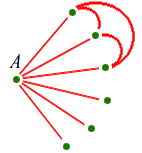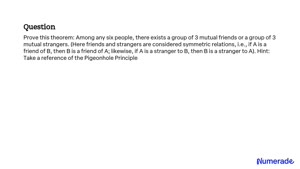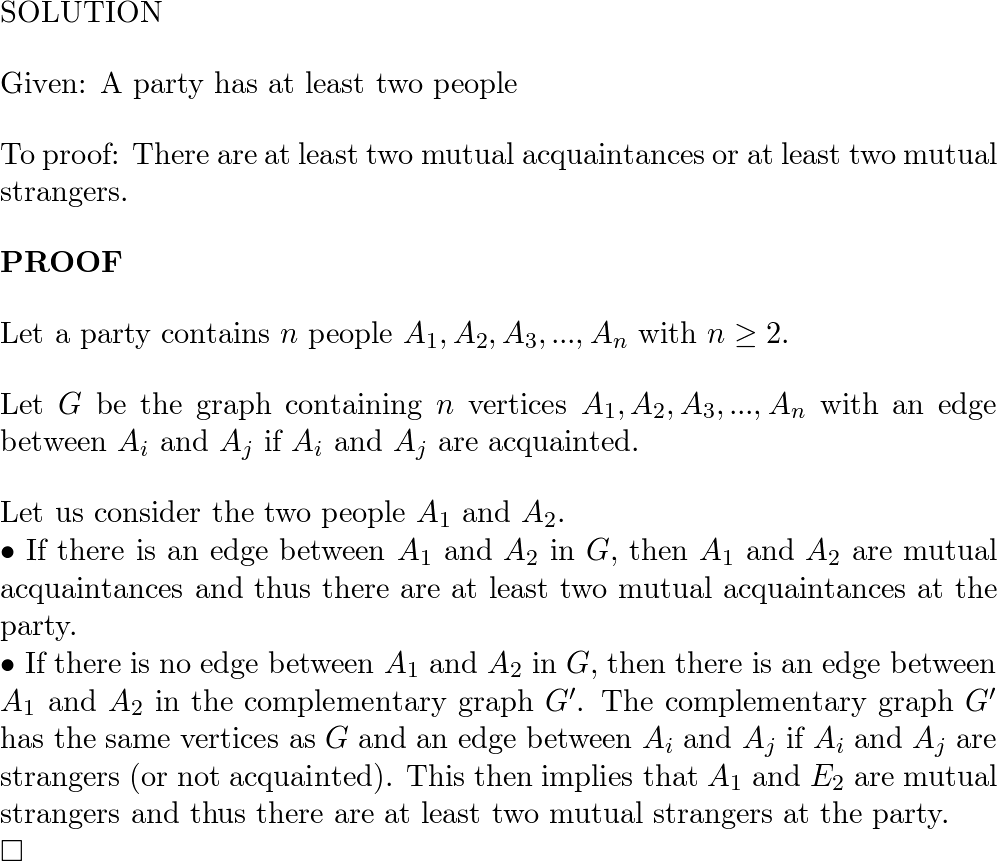Theorem on Friends and Strangers; Why in Any Party of Six People, Either at Least Three of Them Are Mutual Friends, or at Least Three of Them Are Mutual Strangers
Por um escritor misterioso
Descrição
Let’s take a look at Alice first. To her, each one of the other five (Bob, Carol, Dave, Ellen, and Frank) is either a friend or a stranger. Suppose Bob, Dave, and Frank are friends to Alice, and…

Friends and strangers

Friendship - Wikipedia

Theorem on Friends and Strangers. Ramsey Theory and Graham's Number, by Francesco Di Lallo

Ramsey Theorems in Euclidean Geometry — Math In Action
How to prove: at a party of six people either there are three mutual acquaintances or there are three mutual strangers - Quora

SOLVED: Prove this theorem: Among any six people, there exists a group of 3 mutual friends or a group of 3 mutual strangers. (Here friends and strangers are considered symmetric relations, i.e.

Correlation, Causation, and Ramsey Theory

Show that at a party with at least two people, there are at

This math puzzle will help you plan your next party

Theorem on Friends and Strangers. Ramsey Theory and Graham's Number, by Francesco Di Lallo
de
por adulto (o preço varia de acordo com o tamanho do grupo)







